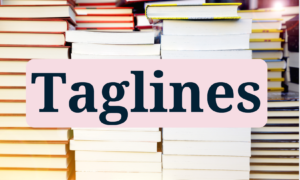In my experience working with writers I’ve discovered three types of writers:
Plotters, Pantsers, and Pagers.
(I’m using the names plotters and pantsers because these are used universally, although they’re not precise descriptions.)
Plotter
If you’re a Plotter you like to plan everything ahead.
You might have detailed character bibles, and/or world-building bibles, you have detailed outlines of your story, storyboards, and you may even have extensive spreadsheets that track character arcs, themes, subplots, timelines, scenes, chapters etc…
All of this BEFORE you begin writing your first draft.
You’re more comfortable knowing where you’re going before you write the first page.
Pantser
If you’re a Pantser you like to sit down and write your story with maybe only an inkling of what your story is about. Maybe you have an idea for a setting, for a character, for a situation.
A spark of an idea and you’re off. No outline. No spreadsheets.
For you, the fun is in the discovery.
If you knew everything ahead of time what would be the point in writing?
Pager
If you’re a Pager you start with a loose outline, and then you write a page, stop, go back and edit. Write a page, stop, go back and edit. Or you might write a chapter, or a scene, stop, go back and edit.
You might rewrite the first few chapters over and over.
You do this editing the whole way through your book.
A System That Works For You
Many writers are versions of these types and some are hybrids.
You may be a Pantser who writes with a loose outline, and you may be a Plotter who writes with an outline but doesn’t have spreadsheets and bibles for everything. You may be a Pager with an extensive outline.
The important takeaway is that you know what type of writer or type of hybrid you are.
Because when you know what type of writer you are, you can set up a writing process that works for you. A process that allows you to write on your own terms, be true to your creative vision, and be more efficient. And a system that helps you avoid writing drafts beyond repair.
Also, when you know what type of writer you are you’ll be more aware of your strengths and weaknesses.
Plotters are typically stronger at structure. But they may need to allow themselves the flexibility to make changes (sometimes major) in order to best serve the story.
Pantsers typically need support with structure, although they’re flexibility muscles are strong.
Pagers often need nudges to keep going, or the constant editing and revising holds them back from getting to the end and can keep them stuck in “perfectionism.”
There is no right or wrong type of writer. Successful writers fall into all of the above types and variations on the above types.
The process can also change draft to draft.
Discover Your Writing Type
What if you don’t yet know your writer type?
Write 50 pages and evaluate how you naturally proceeded.
Write a short story.
Did you plan it out ahead? Did you write by discovery? Did you edit as you go?
Try out the different methods and see what helps you feel the most creative. And what helps keep you on track.
Not everything will feel comfortable all the time.
It’s all about balancing. 🙂
Get advance notice about Immersed in Story articles as well as emails with tips and inspiration to help you write stories that get published by entering your email address right here.





13 thoughts on “Why Your Writer Type Matters”
Such a good article! I find I’m a little of all three, and most times the story dictates how I approach it: thoughtfully, making notes and plans for future chapters, or plowing through with energy. When I was a young writer, I was more of a pager but these days… time is short.
Yes, often the story can dictate the approach. And writers often evolve into a different type over time, as you have!
I wrote and published a self-development book as a pantser and have to admit I hated the process. I’m now writing fiction (short stories) and I’m a plotter. The thought of writing, not knowing where it’s going from scene to scene, fills me with horror! Give me an accurate step sheet any day. Great article, by the way.
I’m mainly Panster and Pager with a little more Plotter needing to be thrown in. Thanks for that.
At a certain point in the process, pantsing is best left behind. 🙂
Thanks, Charlie! It’s interesting because many writers pants their first books because they don’t know there are more efficient methods. BUT some writers are pantsers to the core, and will always write that way…Glad you found a system that works for you!
For the first time in my long life, I’ve just had a glimpse of who I am.
I’m 83, trying to write my first short story, there’s 17 of them in my laptop, from 68 pages to 5 pages, all unfinished and having been edited and re written for months. Suddenly sitting here with half my coffee gone and thinking “omg another booring email about writing a best seller” and BANG she hit me right between the eyes. I’m a “mixer”, I’m infected with all three !
I’m sitting here, stunned, and elated and finally there’s a light ! Thank you.
An epiphany, Frank! How are you going to implement this new-found information you have?
Definitely a Pantser with an ink spot of Pager thrown in.
Great article! Now back to my keyboard.
Kim, get back to me on this at the end of the program. 😉
OMG, there’s a name for my type of writing…oh, wait…Oh, my God, there is a name for my type of writing! I’m not alone. The editor in me has been validated. Thank you for this insight!
So you’re a pager? 🙂
Yep. I’m a pantser who gets stuck after around 5000-8000 words. Screaming out for structure but not yet another course.